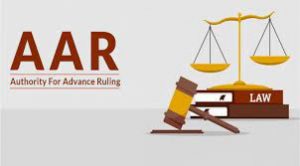 The West Bengal Authority of Advance Ruling (AAR) in the case of Purple Distributors Pvt Ltd vide Order No. 17/WBAAR/2022-23 dated 22.12.2022, has ruled that the conversion of short weld rails (SWR) to long weld rails (LWR) by flash butt welding on the railway tracks along with the supply of labour services shall be treated as composite supplies.
The West Bengal Authority of Advance Ruling (AAR) in the case of Purple Distributors Pvt Ltd vide Order No. 17/WBAAR/2022-23 dated 22.12.2022, has ruled that the conversion of short weld rails (SWR) to long weld rails (LWR) by flash butt welding on the railway tracks along with the supply of labour services shall be treated as composite supplies.
In this case, the applicant was awarded a sub-contract from M/s Patil Rail Infrastructure Pvt. Ltd. to undertake the work of conversion of SWR to LWR by flash butt welding on the tracks running from Furkating (FKG) to Jorhat (JTTN) to Mariani (MXN), in the state of Assam. The work also includes the supply of all assistance and labour for the welding of rail joints.
The applicant sought an advance ruling on the issue rate of GST in respect of work being undertaken by the applicant as a subcontractor for the conversion of SWR to LWR by flash butt welding on the railway tracks.
The applicant contended that since the welding services are provided on railway tracks which can be easily detachable from the earth without any damage and no goods are transferred in the services involved, such services should not be treated as “works contract‟ as defined in clause (119) of section 2 of the GST Act. The applicant further argues that as the treatment or process of welding has only been carried out on goods i.e., on railway tracks to convert from SWR to LWR and the said goods are the property of Indian Railways who is a registered person under the GST Act, the services provided by them would fall under the ambit of job work in terms of definition laid down in clause (68) of section 2 of the Act ibid.
The applicant argued that the supply of labour services, along with the supply of job work services, should be considered a composite supply because these supplies are naturally bundled, with the job work being the primary supply and the labour supply being ancillary. Hence, the rate of GST would be the same as that of job work.
The AAR referred the definition of “works contract‟ given in clause (119) of section 2 of the GST Act read with Para 6(a) of Schedule II of the Act ibid clearly denotes that works contract is a composite supply of services which shall fulfil both the following conditions:
(a) the supply shall be in relation to immovable property only;
(b) the supply essentially involves transfer of property in goods (whether as goods or in some other form).
By referring the above provisions, the AAR observed that the applicant in the present case doesn’t satisfy the later condition as per submission of the applicant i.e., the supply doesn’t involve transfer of property in goods. Therefore, in the instant case, supply would not be treated as works contract.
Further, the AAR observed that the definition of ‘Job Work’ is restricted to any treatment or process only i.e., the activities of a job worker is to undertake any treatment or process on goods which belongs to another registered person. Accordingly, stated that the railway tracks for its permanent characteristics and absence of mobility like other goods, would be regarded as immovable property and therefore, fail to qualify to be goods. Hence, the welding process cannot be treated as ‘Job Work’, since to qualify any treatment or process to be job work, the same has to be undertaken on goods only.
The AAR further observed that services such as welding of railway tracks and labour services are naturally bundled and supplied in conjunction with each other and therefore would fall under the ambit of “composite supply” as defined in clause (30) of Section 2 of the GST Act. Further, 18% GST shall be payable on the composite supply of welding services on the railway tracks along with labour services.


